The trick of providing services to read messages and monitor social network accounts to appropriate assets is one of the three common scams last week, which has just been warned to the public by the Department of Information Security (Ministry of Information and Communications).
According to the Department of Information Security, online fraud is still increasing, and the ultimate goal of the subjects is always to appropriate property. Below are 3 scams that are used a lot by subjects in Vietnam's cyberspace from November 18 to November 24:
Fraudulent impersonation of event and contest organizers
Taking advantage of a series of events and activities taking place in the last months of the year, recently, many subjects have created fake fanpages of contests and programs to defraud and appropriate property.
The common trick of these subjects is to copy images, content, videos... from the official website of the event or contest and post them on fake fanpages to create trust.
Next, they lure people who want to participate in events and programs to use Telegram to register and review their applications.
During this process, to complete the application review process, the scammer requires the applicant to perform the task of evaluating and purchasing the costume by transferring money to the account provided by them.

After people placed many orders with larger amounts, the subject gave many reasons such as incorrect message syntax, system errors, etc. to refuse to pay the principal.
The scammer also asks the victim to transfer more money to verify the order and reserve the account. When the victim runs out of money to transfer or discovers that they have been scammed, the subject will block communication.
The Information Security Department recommends that people be vigilant when receiving information about events and competitions via social networks; verify the identity of the organizing unit before participating; do not follow the instructions of the subject; do not provide personal information; and absolutely do not access strange links, do not download applications of unknown origin.
Impersonating the Ministry of Labor, Invalids and Social Affairs to trick people who want to work abroad
Recently, some people have impersonated the Ministry of Labor, Invalids and Social Affairs and the Overseas Labor Center under the Ministry to defraud and appropriate property of people who want to work abroad.
Specifically, the subjects created fanpages named 'Overseas Employment Consulting Center - Ministry of Labor, War Invalids and Social Affairs', 'Labor Export Consulting - Asian', impersonating the information page of the Ministry of Labor, War Invalids and Social Affairs.
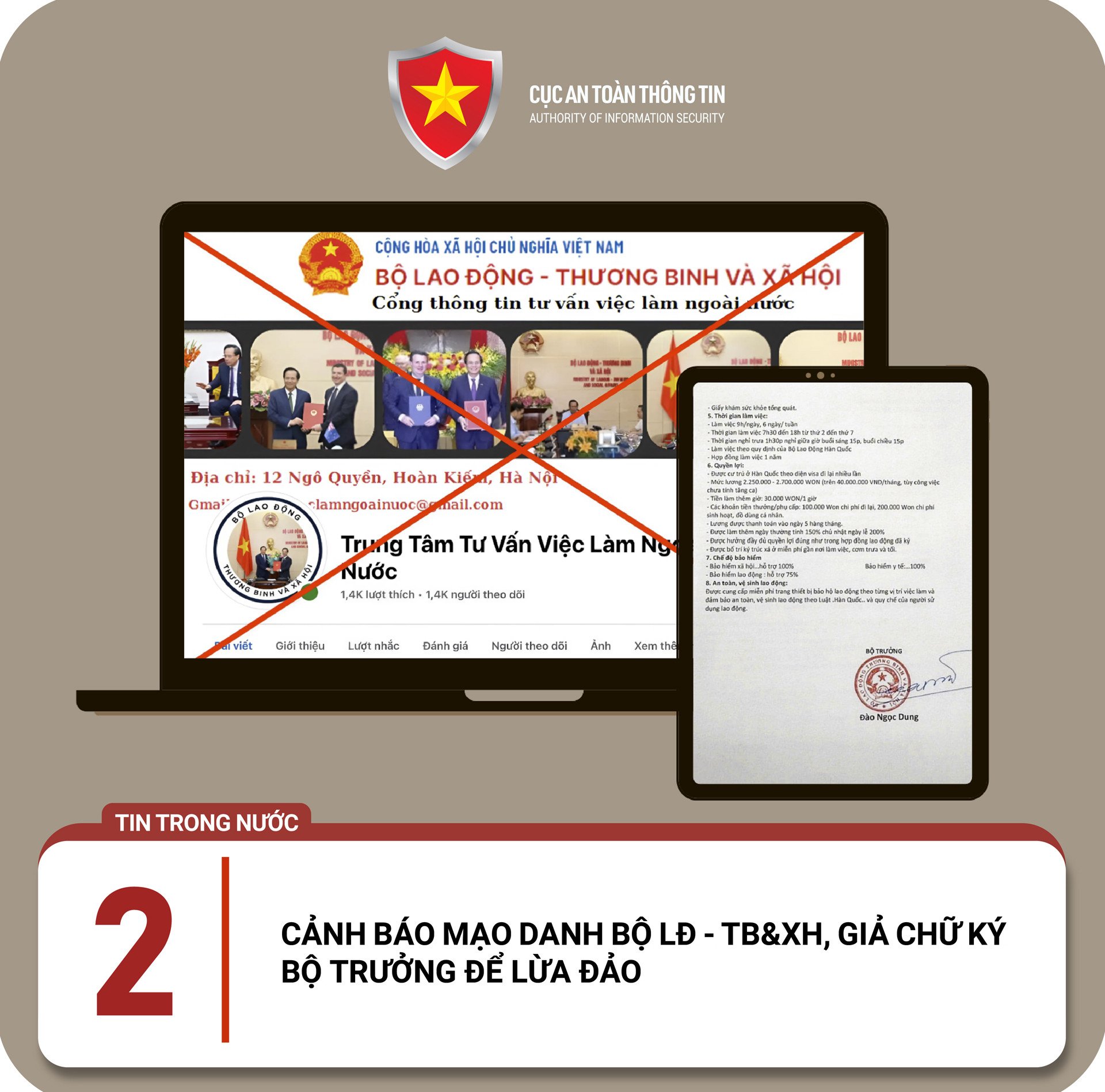
To build trust and lure people who want to work abroad, the scammer also forged the signature of the Minister of Labor, Invalids and Social Affairs, posted content with images of leaders of the Ministry of Labor, Invalids and Social Affairs working with foreign partners on fake fanpages and websites.
The Department of Information Security recommends that people who want to export labor should be cautious of organizations that offer invitations on social networks; proactively research and compare information about online advertising units with the list of businesses licensed to provide services to send workers to work abroad, posted on the website dolab.gov.vn of the Department of Overseas Labor Management - Ministry of Labor, Invalids and Social Affairs. At the same time, carefully review the content of the service contract between the parties before signing.
Beware of services that read messages and monitor social network accounts
Social networks have recently seen many advertisements for services that read messages and monitor social network accounts. Although this is not a new form of fraud, many users still fall into the trap.
Fraudsters contact and provide people in need with information about service packages for reading messages, monitoring other people's social media accounts, and account numbers to transfer service fees.
After the victim transfers the service fee in advance, the subject will block communication.
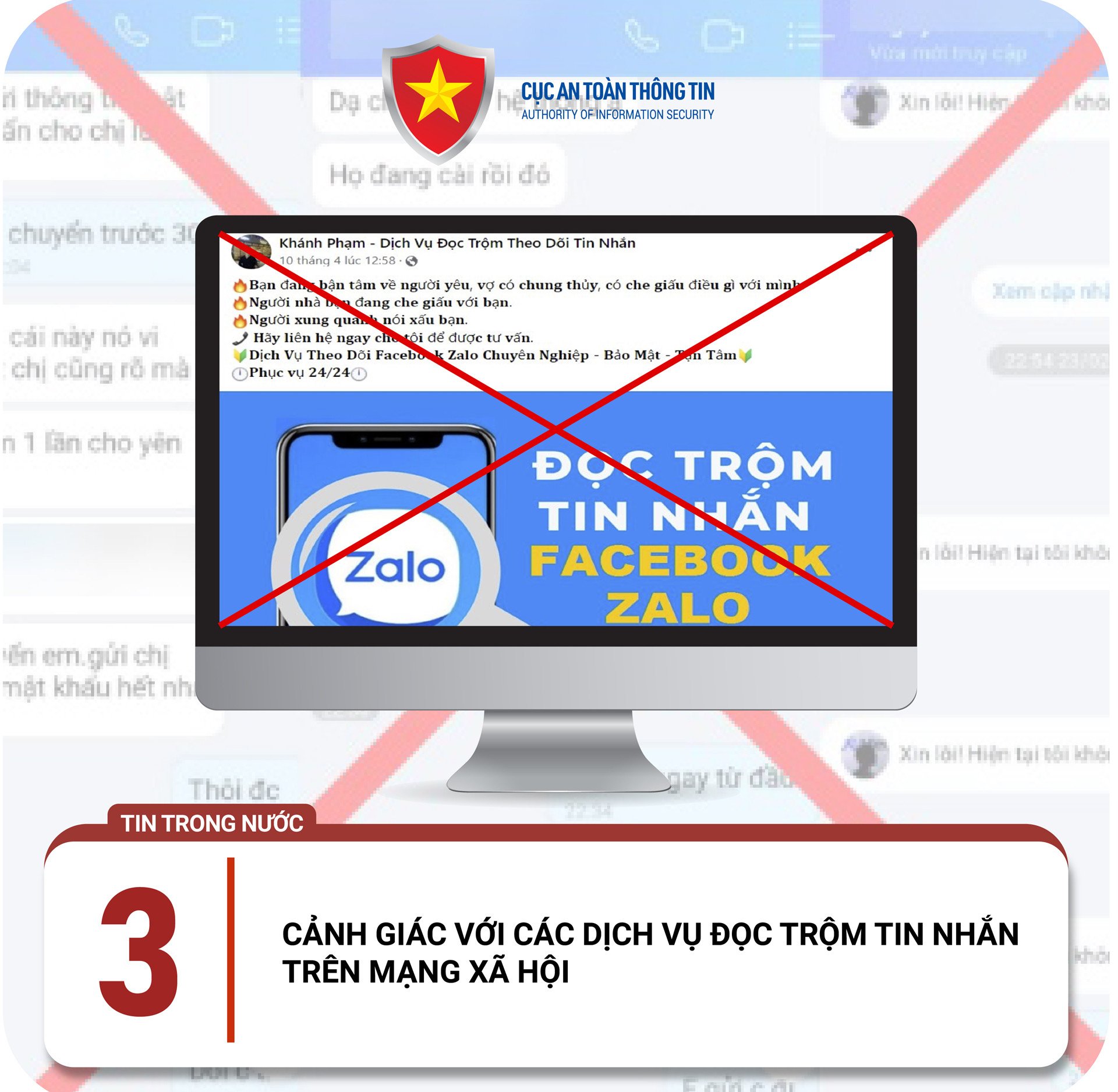
Recommending people not to trust products and services of unknown origin online, the Information Security Department also pointed out: Reading messages is an act that violates the law and social ethics.
Therefore, people should not use services or applications that are intended to invade privacy.
Users should also avoid downloading applications from unofficial sources; use security software to scan and detect malware that may be tracking the device; regularly change email passwords, social network accounts and use two-factor authentication to enhance security.

Source: https://vietnamnet.vn/lua-cung-cap-dich-vu-giam-sat-tai-khoan-mang-xa-hoi-de-chiem-doat-tai-san-2345172.html


![[Photo] Students of the Academy of Posts and Telecommunications visit the editorial office of Nhan Dan Newspaper](https://vstatic.vietnam.vn/vietnam/resource/IMAGE/2025/3/26/51093483a84448ccb39d59333ead674e)
![[Photo] Editor-in-Chief of Nhan Dan Newspaper Le Quoc Minh receives Iranian Ambassador Ali Akbar Nazari](https://vstatic.vietnam.vn/vietnam/resource/IMAGE/2025/3/26/269ebdab536444818728656f8e3ba653)

![[Photo] Prime Minister Pham Minh Chinh attends the launching ceremony of the "Digital Literacy for All" Movement](https://vstatic.vietnam.vn/vietnam/resource/IMAGE/2025/3/26/a58cb8d1bc424828919805bc30e8c348)
![[Photo] General Secretary To Lam receives Singaporean Prime Minister Lawrence Wong](https://vstatic.vietnam.vn/vietnam/resource/IMAGE/2025/3/26/4bc6a8b08fcc4cb78cf30928f6bd979e)
![[Photo] President Luong Cuong attends the 90th Anniversary of Vietnam Militia and Self-Defense Forces](https://vstatic.vietnam.vn/vietnam/resource/IMAGE/2025/3/26/678c7652b6324b29ba069915c5f0fdaf)


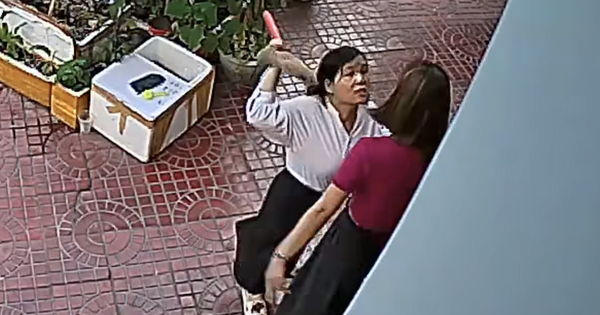


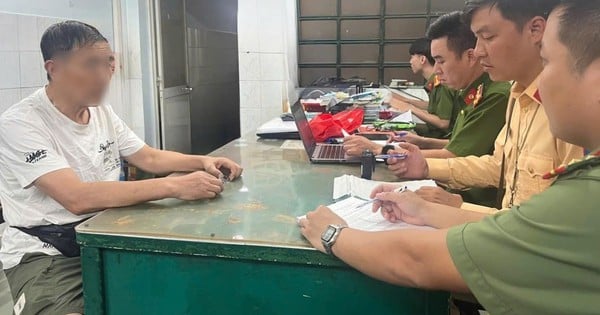






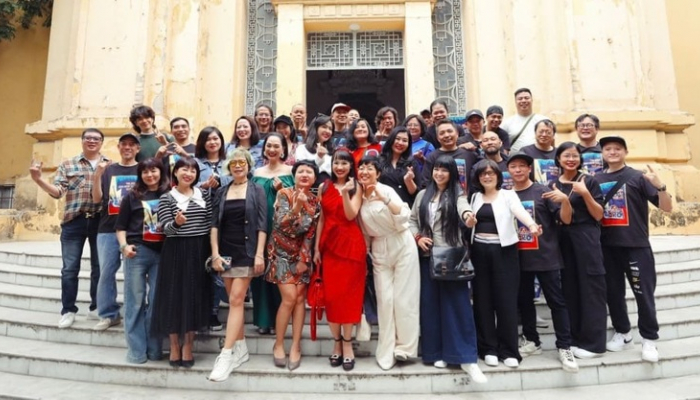





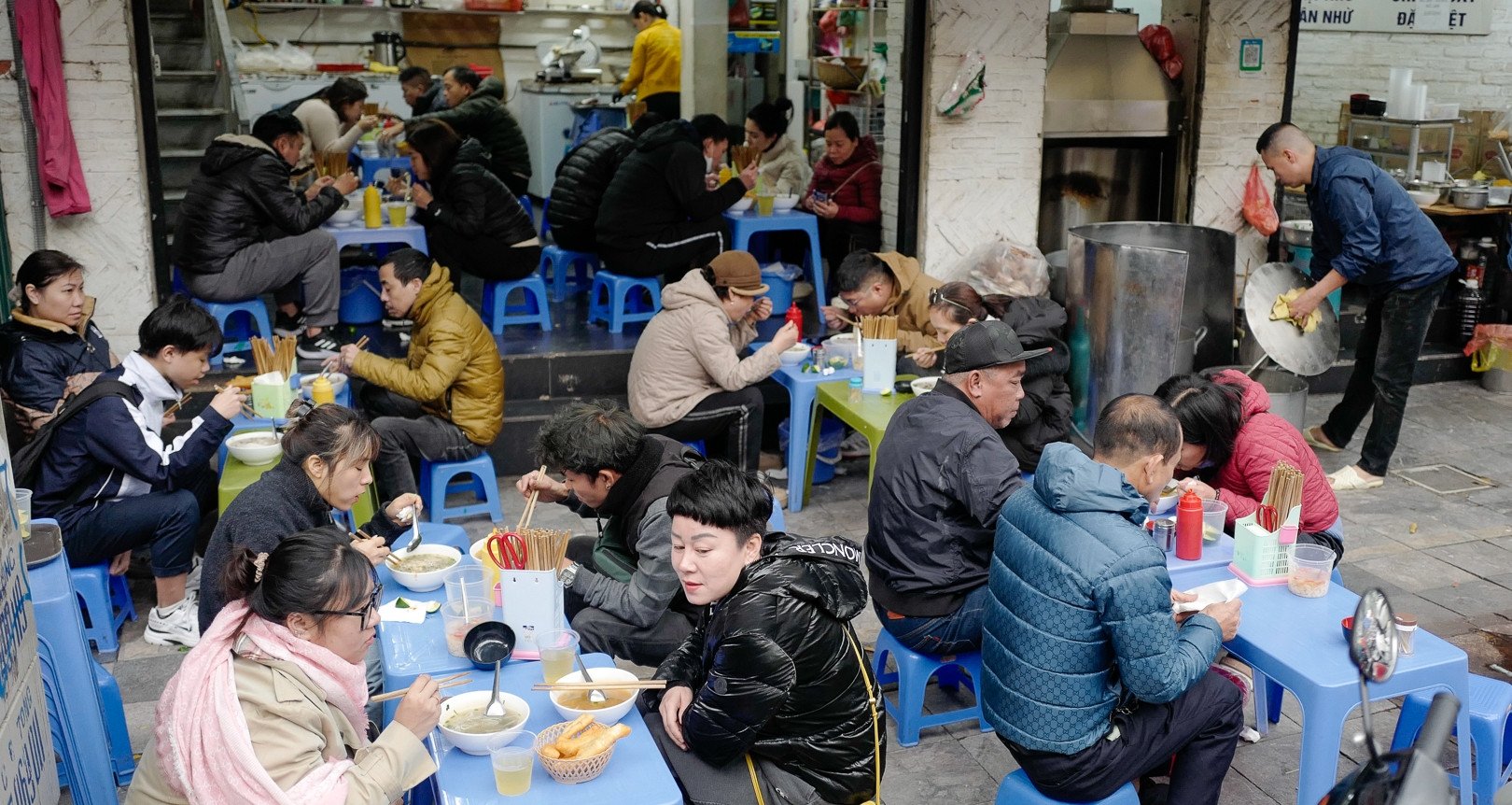

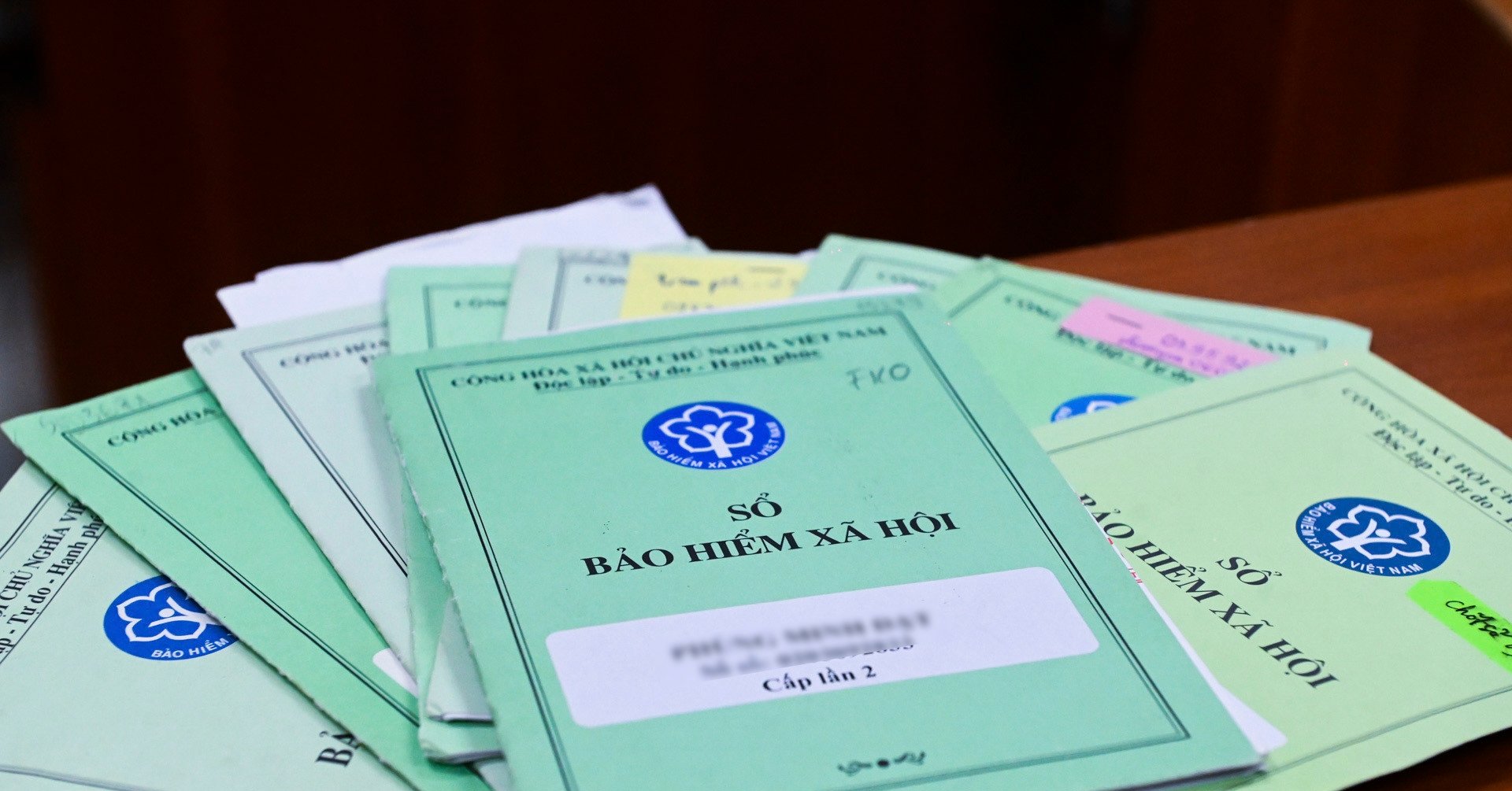

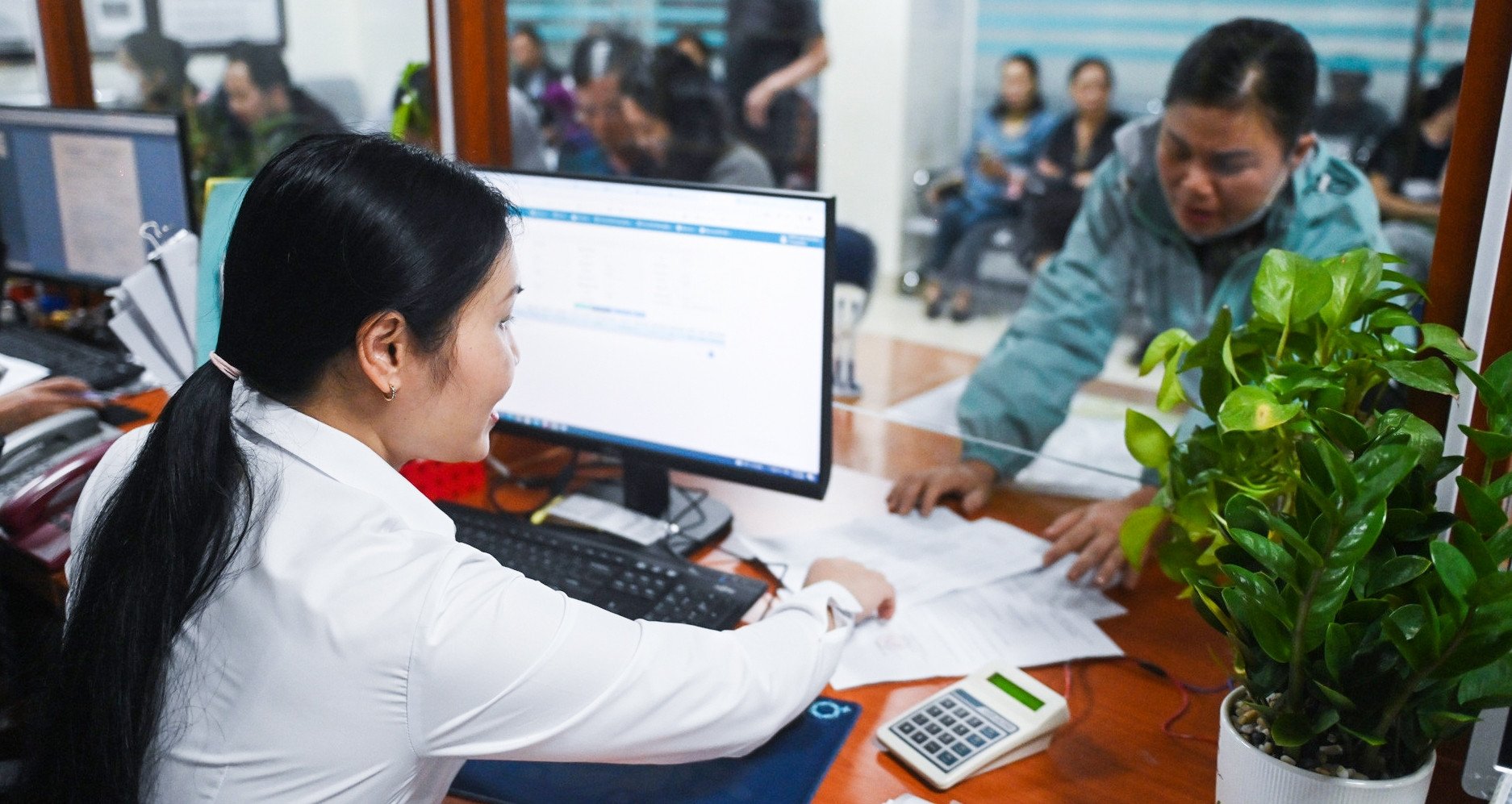













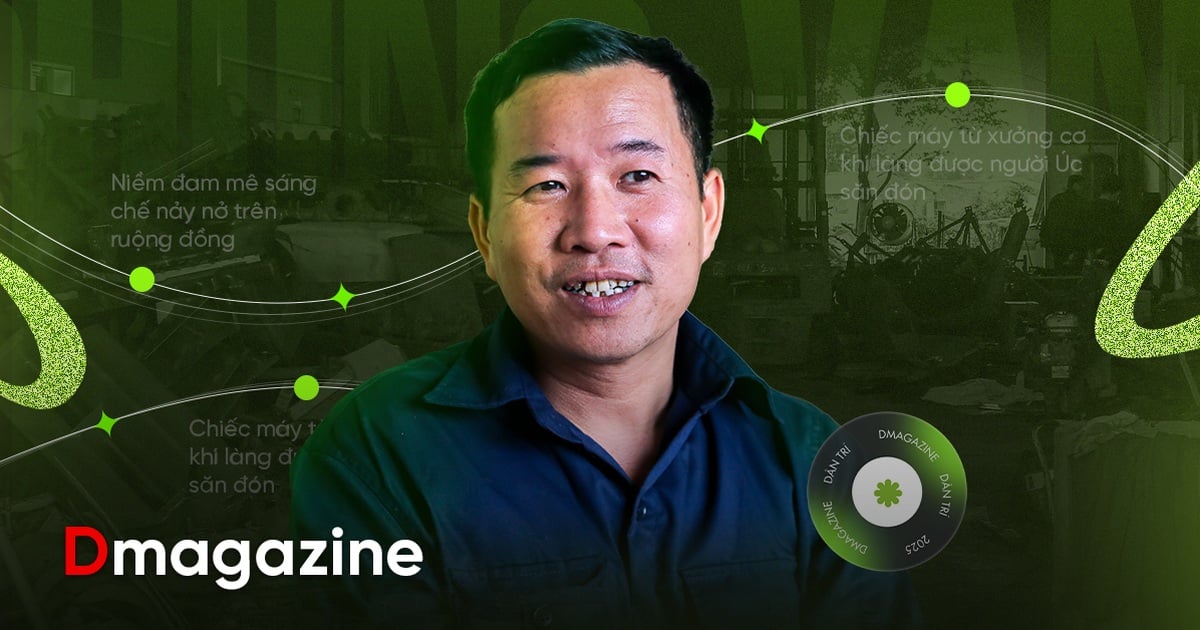





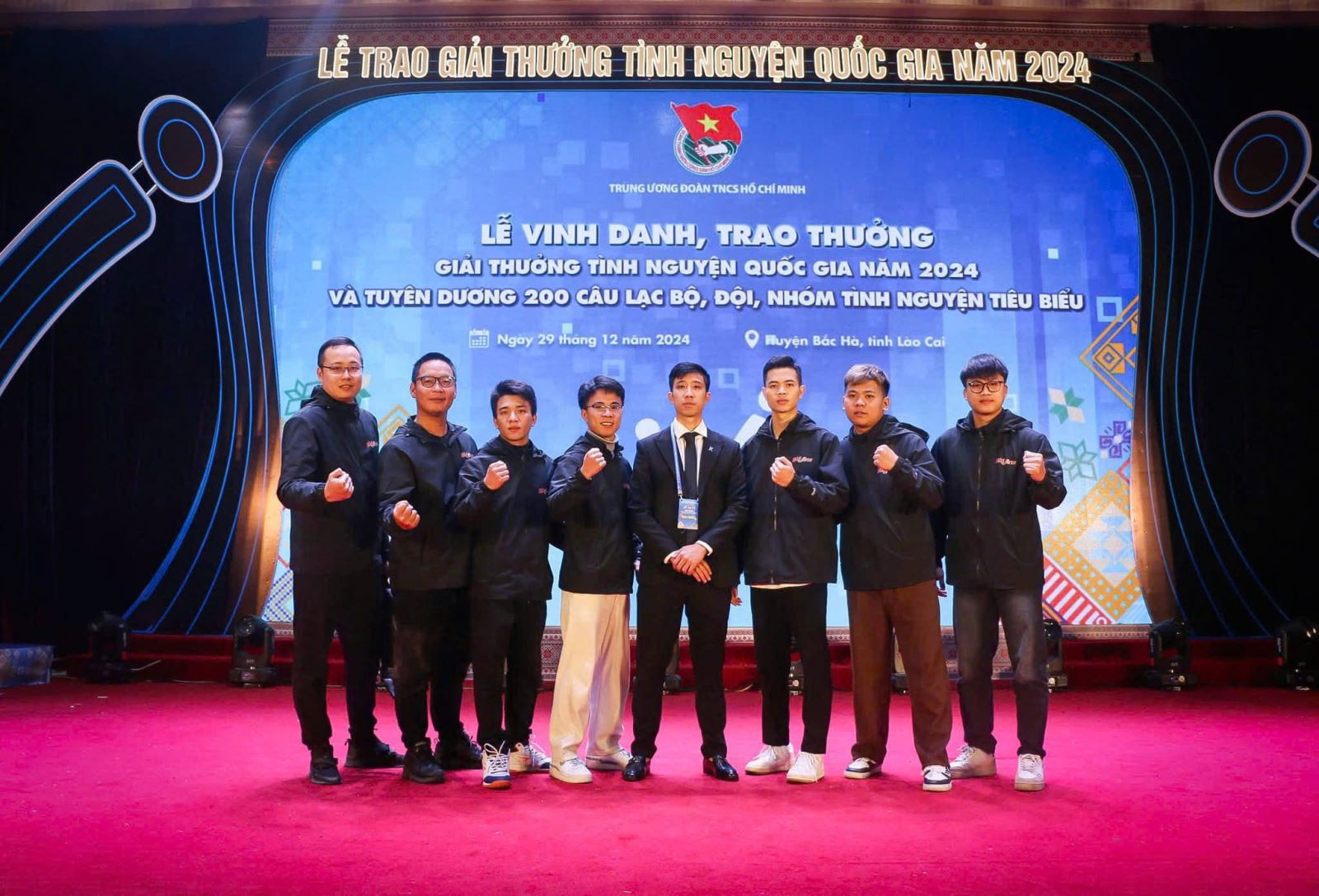






















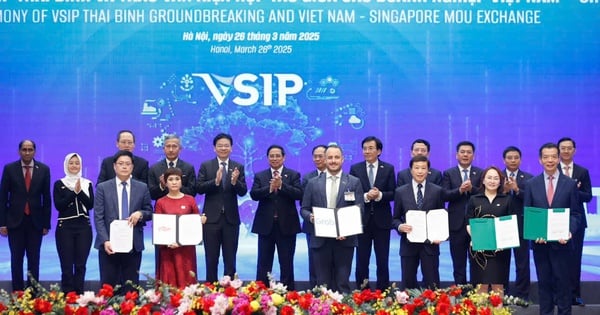

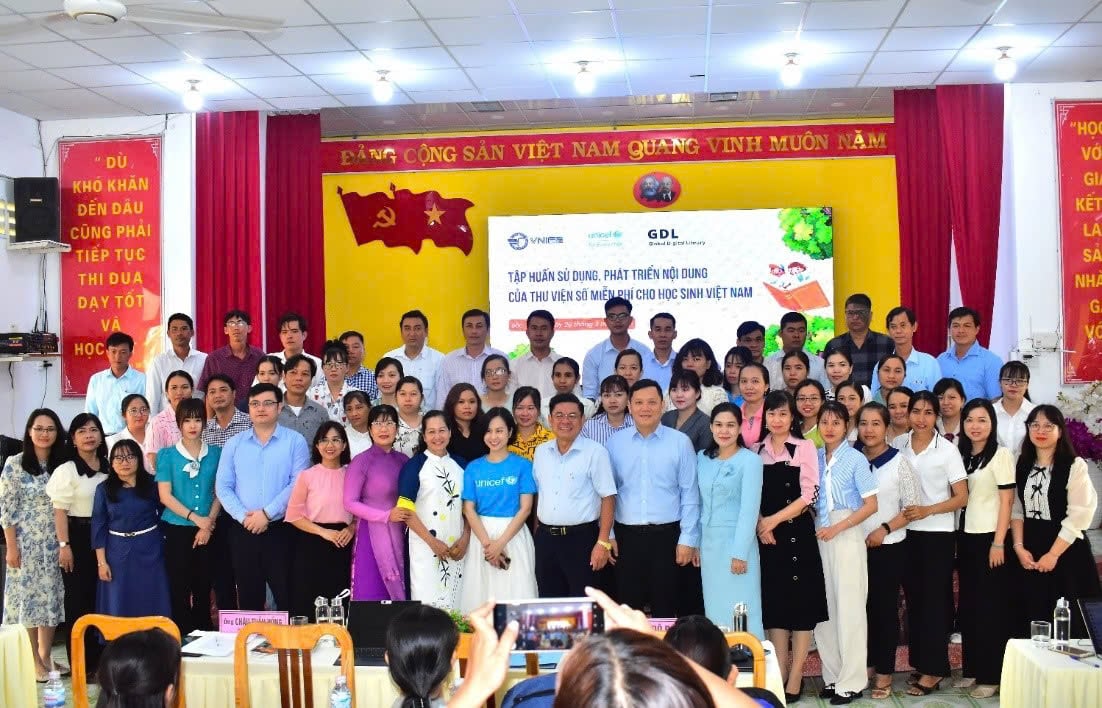


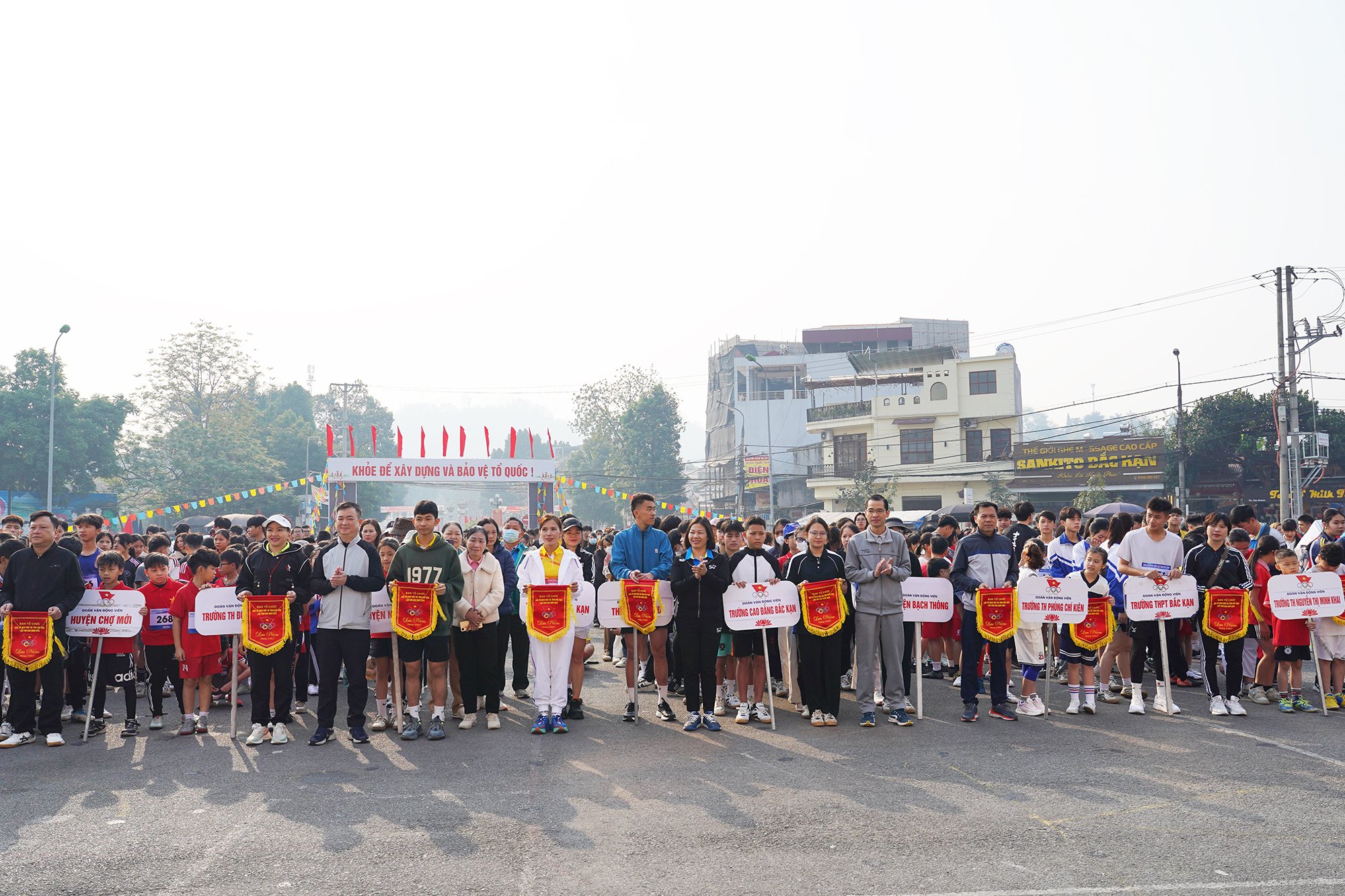


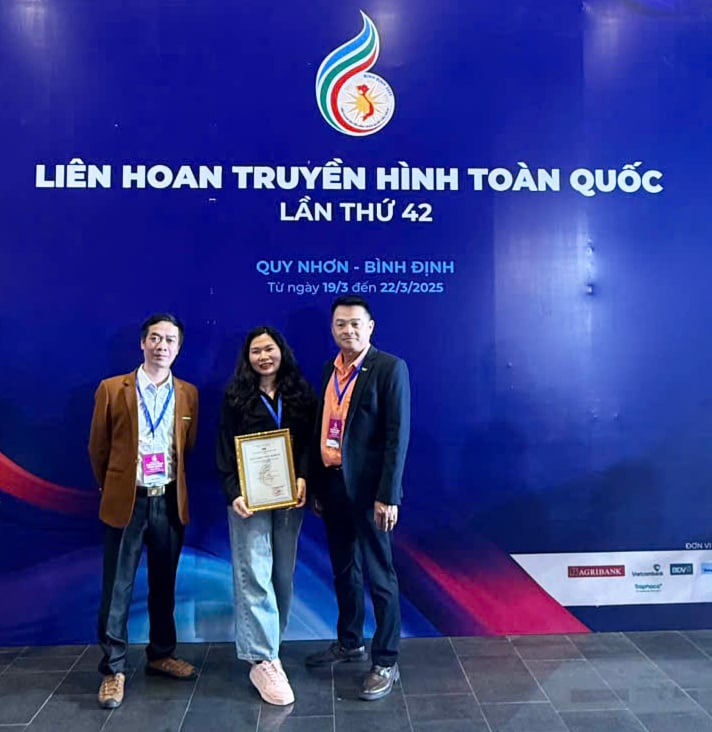



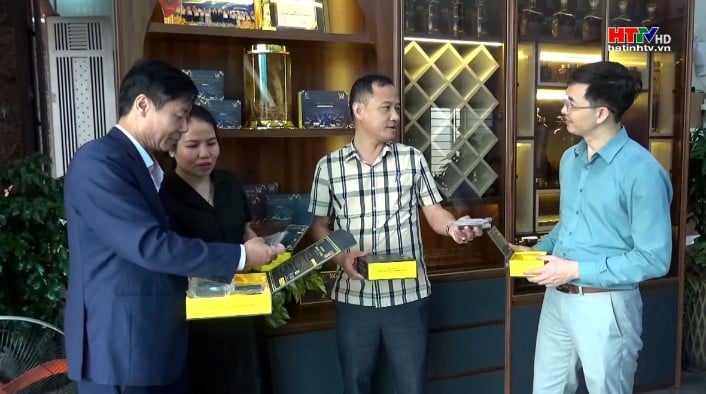
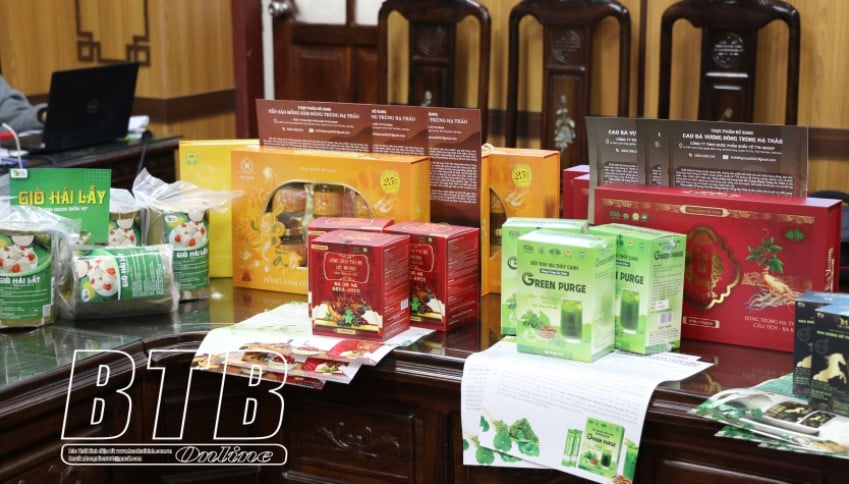




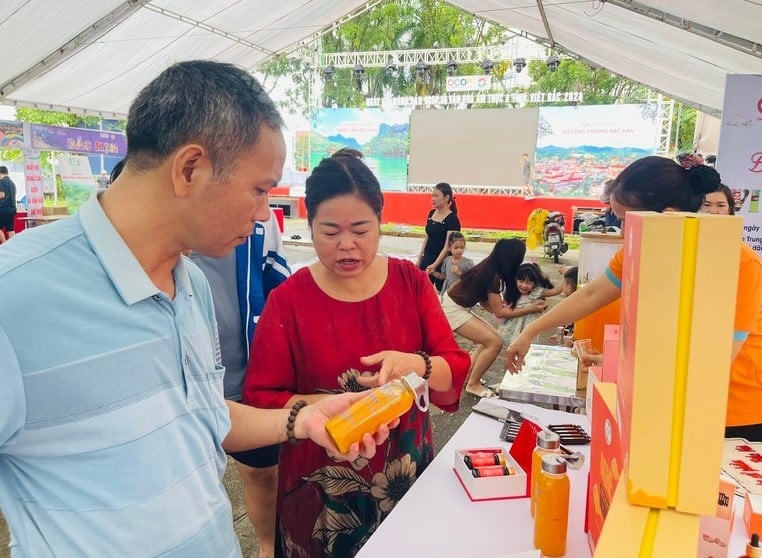
Comment (0)